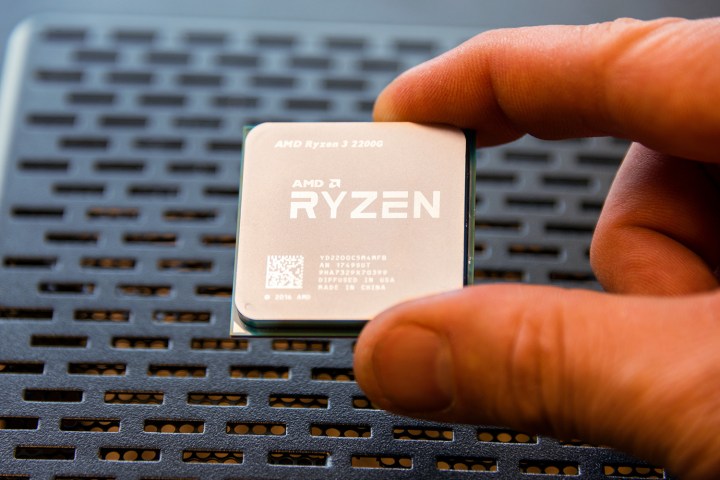
Hoping to finally fulfill that promise, we’ve now got the new $169 Ryzen 5 2400G processor, and the smaller $99 Ryzen 3 2200G, both powered by Vega graphics. The question with these APUs is whether or not they can actually replace a discrete graphics card. AMD claims they can, but our tests haven’t been quite as positive.
What they can do, however, is play games like Overwatch at 30-40 frames per second with Low settings. But is that enough for you?
.@AMD has a new Vega-powered #APU. Would you be willing to play games at 30fps if it meant not having to buy a #graphicscard?
— Digital Trends (@DigitalTrends) February 12, 2018
The new Vega graphics easily outpace other onboard solutions like Intel HD graphics, but don’t get close to replacing something like a GTX 1050. As we’ve pointed out, it would only cost $90 more to pair a 1050 with a Ryzen 3 1200 — and see much better game performance.
Based on the results of our poll so far, it looks like many of agree with us. For those of you who are cool with getting a lower framerate, we’ll have to wait to see if some PC manufacturers can utilize these APUs in dirt-cheap desktops. For now, they just aren’t what you want to base a cheap gaming PC build on.
Editors' Recommendations
- AMD makes older PCs more upgradeable once again
- AMD’s new CPU slammed as ‘anti-consumer at best’
- AMD just announced the graphics card everyone has been waiting for
- AMD might have a new graphics card next month, too
- Graphics cards are selling again, and that worries me



